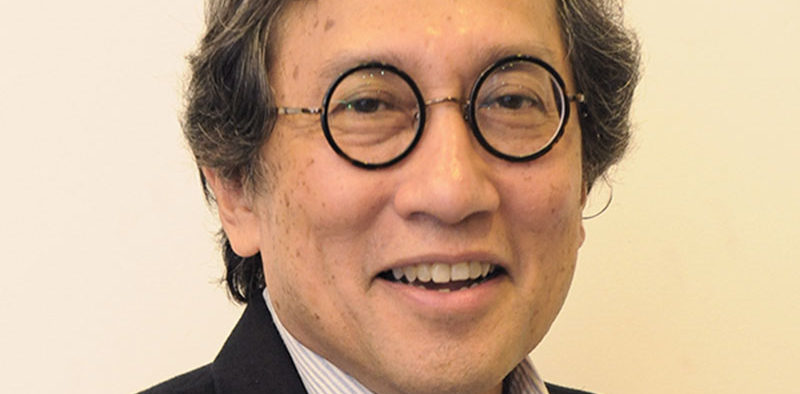Harsh Truths for Hong Kong

As I write this, demonstrations in Hong Kong continue, although the extradition bill that sparked them has been shelved. This is the latest phase of protests that began in 2014 with the ‘Occupy Central’ or ‘Umbrella’ movement.
The proximate causes may be different, but they all arise from the disquiet of many Hong Kong people with Beijing’s sway. I do not know when the demonstrations will end. But I am quite certain about what they will achieve: Absolutely nothing!
I can understand the disquiet of Hong Kong people subject to a China that under Xi Jinping has increasingly stressed the control of the Chinese Communist Party, over every sphere of life in China and not just in Hong Kong. But Hong Kong lost that battle before it even began.
Ever since the end of the Qing Dynasty in the late 19th century, the legitimacy of Chinese governments – Imperial, Republican or Communist – has rested on the ability to defend China’s sovereignty and its borders. I don’t think Beijing is eager to exercise direct control over Hong Kong. But the unity of China is not a matter on which any Chinese government will ever compromise.
The Hong Kong people and the West generally, may have thought that the emphasis of ‘One Country, Two Systems’ slogan lay on the second phrase. But for Beijing it was clearly always on ‘One Country’.
The Hong Kong people and the West generally, may have thought that the emphasis of ‘One Country, Two Systems’ slogan lay on the second phrase. But for Beijing it was clearly always on ‘One Country’. I shall not speculate about whether there was any real coincidence between what Britain’s leaders privately believed in 1997 and what they now say they believed.
Beijing was willing to tolerate ‘Two Systems’ provided it did not undermine ‘One Country’. But this is precisely what the demonstrators, particularly those who have resorted to violence in defiance of the law, are now doing.
Beijing will not act precipitously. It has bigger and more immediate domestic problems to deal with, all of which have been exacerbated by the trade war with the US. Beijing can wait. After all, where is Hong Kong going? Where can it go? And which foreign country will offer more than token or rhetorical support to the demonstrators? The answer to these questions is nowhere and no one.
The Hong Kong people are used to thinking of themselves as the centre of their own universe, a delusion perhaps inherited from the British. But what the demonstrators have failed to understand is that Hong Kong is no longer unique.
Even third and fourth tier Chinese cities now interact directly with the world. The Trump administration may make it more difficult for them to do so. But any attempt to decouple China from the world economy is bound to fail. Hong Kong is just another Chinese city.
Historically, since 1842, when the Treaty of Nanking ceded the island to Britain, Hong Kong’s role was to act as the interface between China and the outside world. But even third and fourth tier Chinese cities now interact directly with the world. The Trump administration may make it more difficult for them to do so. But any attempt to decouple China from the world economy is bound to fail. Hong Kong is just another Chinese city.
Of course, Hong Kong still has some advantages. It prospered because it was shielded from the political vicissitudes of late-Qing, Republican and post-1949 China, and enjoyed the rule of law. But it is precisely confidence in Hong Kong’s political stability and the rule of law that constant demonstrations and the resort to violence has called into question. They only hasten the erosion of Hong Kong’s uniqueness.
The West generally sees the issue as the Hong Kong people demanding more rights and democracy. Typical was the headline of a New York Times article of 8th July, “Hong Kong Protestors Are Fueled by a Broader Demand: More Democracy”.
Perhaps they do want more democracy. I applaud the idealism and courage of the young demonstrators; I doubt their common-sense.
For 155 years from 1842 to the handover in 1997, London ruled Hong Kong as a colony not a democracy; the people of Hong Kong were subjects not citizens. It was only on the very deathbed of colonial rule, that Britain found religion and raised political expectations that no Hong Kong government can fulfill.
The people of Hong Kong are now citizens – of China. The rights they enjoyed as a British colony were not very different from what they were granted under ‘One Country, Two Systems’ and substantially more than those enjoyed by other citizens of China. It will not get any better.
What Hong Kong really needs is not more democracy but better governance. Good governance requires political representation, but the terms are not synonyms.
Underlying the frustration that fuels the demonstrations is loss of confidence of many Hong Kong youth in their future. It is virtually impossible for ordinary Hong Kong people to own or even rent decent property, with all the social consequences this implies which go far beyond housing.
Political stability requires a broad-based property-owning class with a strong stake in the system. In 2018, only slightly over 49% of the population of Hong Kong owned their own homes. In Singapore, the figure for 2018 is 91%.
I suspect that the only Hong Kong demographic that London really cared about were the tycoons. So long as they paid token obeisance to British rule, they were largely left alone to become fabulously rich and to make London rich. Any rights ordinary Hong Kong people enjoyed were a consequence of the need to create conditions that would allow the tycoons to prosper, not ends in themselves. It was for essentially the same reason that Beijing acquiesced in ‘Two Systems’.
The power of the tycoons survived the handover. They now only pay ritual obeisance to a new master and the bulk of their fortunes is probably no longer in Hong Kong. But it is their power that prevents good governance and a sensible housing policy. I am surprised that the anger and frustration of ordinary Hong Kong people is not more directed against them.
I do not think Beijing wants to nakedly intervene to stabilize Hong Kong because to do so would be to destroy Hong Kong. Still, I also do not think Beijing’s patience is infinite.
What is now happening in Hong Kong can only strengthen Beijing’s long-term determination to bring this unruly territory to heel. Not to do so will have broader implications for the unity of China, and in particular on the idea of ‘One China’ as applied to Taiwan. By comparison, Hong Kong’s continued prosperity is a second-order interest to Beijing.
Singapore and Hong Kong are often regarded as rivals. There is undoubtedly an element of competition in the relationship. We may gain some short-term advantage from Hong Kong’s troubles. Thoughtful Singaporeans nevertheless understand that the long-term interest of Singapore and the entire region is in a stable and prosperous Hong Kong.
We watch what is unfolding in Hong Kong with sympathy. But it is the sympathy that one feels for a friend or relative so desperate as to contemplate suicide. This is not something most Singaporeans would care to emulate. Unlike Hong Kong, Singapore is independent and sovereign. Our destiny is in our own hands. We can only hope that Hong Kong stabilizes itself without Beijing having to directly intervene.
The demonstrators should remember that extradition legislation actually formally emphasises ‘Two Systems’. After all, if it is only ‘One Country’ why is there any need for legislation? And in any case, with or without legislation, China can snatch – and has snatched – anyone it wants from over the border.









